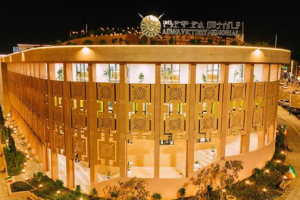
Patriotic songs that have been sung by a number of Ethiopian artists in different versions and musical arrangements that evoke memories hold a special place in the music history of Ethiopia beyond their power to mobilize the public during war times.
Though their styles, forms and lyrics vary greatly, they (especially the war songs) all glorify the greatness and unity of Ethiopia across generations.
The songs remarkably describe Ethiopia as a greatest land in Africa for its divinity, attractive landscape, and natural treasure.
The tracks convey a message to the rest of the world that Ethiopia is a land of ancient history, and beautiful landscape stretched between tallest highlands (Semien Mountains) and lowest points on earth (Dallol Depression). The songs praise and glorify country’s natural appearance, culture, language and mindset of the society that stand in unison during challenging times especially in the fight against invasion.
Moreover, most of the prominent artists who produced several patriotic songs during war times have underscored in their songs that Ethiopia is an icon in the black history of struggle for independence. They denoted Ethiopia’s victory against colonialism as a foundation for majority of the African nations to adapt the green, yellow, red colors of Ethiopia in their flags. Although several singers have a slight difference in their approach, language, and the way they portrait their feelings, they all meet at one point-that depicts Ethiopia’s greatness.
On the last edition of music review by The Ethiopian Herald, we have discussed on the lyrics extracted from the song of Tilahun Gessesse’s “For Beloved Motherland Ethiopia.” For today’s edition, the writer picked Artist Tsehaye Yohannes’s lyrics that focused on the ancient history of Ethiopia and depicts country’s resources and people’s fortitude to accomplish development. Here is what he stated in his first stanza of the lyric of “what else is identical to a motherland” song.
Who else looks like a mother?
What is identical to the homeland?
I remember the village
Taking a trip down memory lane
From where I am
About my mother’s kindness
My country’s reminiscence
In this song, Tsehaye, who is one of the most referred artists in Ethiopia emphasized that a mother and a country are almost the same; no one can have worthy of comparison to both.
Impersonating Ethiopia as a mother, Tsehaye denoted that everything can appears on one’s imagination. However, nothing can make an Ethiopian passionate and pleasant than being nostalgic recalling about motherland.
In this lyric, the phrases “my mother” and “kindness” prove Tsehaye’s purpose to depict Ethiopia in the mind of his audience as a beloved country. He also intentionally repeats the word “remember” to emphasize his nostalgic emotion for the good deeds his country did to him.
Residing afar, the singer remembers his motherland’s glorious ancient civilization in terms of the widest territory that was stretched between the current location of the country and Southern Arabia.
In addition, Tsehaye expresses his country’s fascinating future of development through the hard work of its people in order to restoring its ancient civilization, wisdom and power.
The memory of the settlement
From where I inhabit,
I remember the youth while lending hands
To install pillar for restoring mother’s house
They were keen and genuine to collaborate
Gathering from their respective hut
Tsehaye convey a great message for Ethiopian people to love their mother land, respect each other, and preserve historic heritages. He also amplify the supportive culture of the youth to accomplish a certain duty demanded by elders – especially mothers. The lines describe the youth as keen and willful to renovate a mother’s house as a symbol that they are ardent to employ energy on national development.
It can be said that the prominent singer seek unity and coordination among the people to restore Ethiopia’s glorious history. Tsehaye did similar to what other Ethiopian singers do in preaching citizens to become solid defenders of their country so as to maintain sovereignty which is a cornerstone for preserving identity and liberty.
Enjoying plenty of food
Far from a motherland
Cannot serve body to build
I never want to see your adversity, my homeland
I want to die without hesitation
Rather than to confess your destruction
To sum up, Tsehaye notes that whatever life seems comfortable abroad, it can’t help to feel fine and healthy as one live far from his people and the atmosphere he grew up. Nothing can replace the warmest hospitality of Ethiopians. It seems hard to break the bond that life draws between an individual and the community that nurtured him, that’s why the singer deliberately resonate nostalgia in this song repeatedly.
In his phrase, “I never want to see your adversity,” the singer emphasized that it is better for someone to commit suicide without any hesitation than to live confessing the misfortune of a beloved country. Thus, it is better to die to save the country, as the singer uttered “I want to die without hesitation.”
This is an important word of the Artist which should be noticed by the present generation to protect the sovereignty and history of the country despite all challenges.
BY HAFTU GEBREZGABIHER
The Ethiopian Herald 12 August 2021





